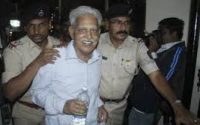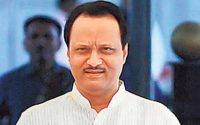$100 Website Offer
Get your personal website + domain for just $100.
Limited Time Offer!
Claim Your Website NowBombay HC order will hit phone tapping by taxman etc.
Source – financialexpress.com
At a time when governments—at the Centre and the states—are looking at tracking even social media messages, the Bombay High Court has done well to reiterate an individual’s right to privacy and to rule that even tapping of phones that has been signed off by government officials is unlawful if it doesn’t meet certain criterion. The case involves a south Mumbai businessman whom the CBI believed was bribing bank officials to get some favours in connection with a loan. The agency decided to tap his phone and, in fact, three such orders were issued; in October 2009, December 2009 and then again in February 2010. The businessman, however, approached the court to get the records destroyed since, he argued, the tapping was illegal.
The court has concurred with this and cited various rulings, starting with the famous PUCL one, to support its contention. “But the right to hold a telephone conversation in the privacy of one’s home”, the Supreme Court had ruled, “or office without interference can certainly be claimed as ‘right to privacy’”. Tapping of phones, the SC had ruled, violated a citizen’s rights under Article 21 “unless it is permitted under the procedure established by law”. This procedure involves the setting up of a review committee comprising the
Cabinet/Law/Telecom secretary at the central government level—it is headed by the chief secretary at the state level—which was to, within two months, review the tapping order and see whether this passes the conditions laid down under Section 5(2) of the Telegraph Act. Section 5(2), in turn, talks of how there has to be either a “public emergency” or the tapping has to be “in the interest of public safety”. In the case of the Mumbai businessman, the tapping orders were issued with “public safety” as the objective.
The Bombay High Court has pointed out that while there are several SC judgments that do not think tapping of telephone conversations violates privacy—which is a fundamental right—a 9-judge bench in KS Puttaswamy had accepted this principle in 2017, and this overruled earlier Constitution Bench judgments. Any infringement of the right to privacy, the court said, would have to meet certain tests; it had to be sanctioned by law, it must be necessary, it must be proportionate to the need for it and there must be procedural guarantees against the abuse of such powers.
In this particular case, the Bombay High Court said, the tapping orders were not referred to the review committee which could ascertain whether they met the prescribed standards. The government officials, the court added, were not able to show that there was any risk to “the people at large”, nor could they show that the move was in the “interest of the public safety”. While not following proper procedure in this case was enough reason for the court to quash the tapping orders and to order that the transcripts be destroyed, it is not clear if the future benchmark for tapping is going to be just ‘public emergency’ and ‘public safety’; if it is, the taxman or the Enforcement Directorate may find it difficult to get permission to tap phones in future. With the Supreme Court now hearing cases about whether social media messages should be traceable, and whether lawful intercepts should be allowed, the issue of the right to privacy—and how absolute it is—will come up again; in which case, there will be some more clarity on the issue.



